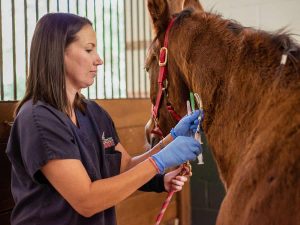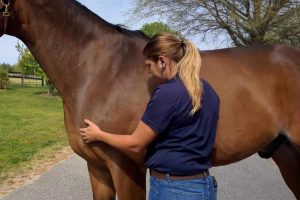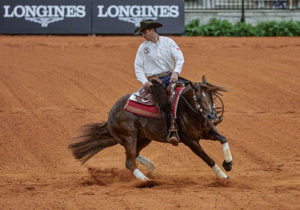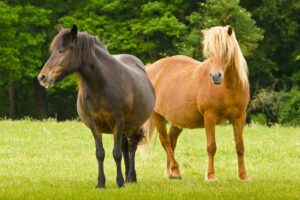
The Dwindling Supply of Equine Veterinarians
The veterinary shortage in equine practice is no longer pending; it has already arrived.


The veterinary shortage in equine practice is no longer pending; it has already arrived.

With proper care, mares with high-risk pregnancies can deliver healthy foals safely.

Determining a horse’s cause of neck pain can help ensure he receives the correct treatment.

Cardiovascular malfunction might impede athletic performance, but with correct diagnosis and management some horses can still have athletic careers.

How veterinarians navigate 4 common scenarios, from dehydration to the postpartum period, that increase colic risk.

Equine digestion is full of twists and turns, and a lot can go wrong during the process. Learn how colic, diarrhea, ulcers, and other ailments can affect your horse’s GI tract and what steps to take to optimize his digestive health.

Age is just a number, but age-related horse health and nutritional challenges are very real. Here are 6 tips to help you formulate the optimal diet for your horse’s golden years.

Equine athletes have nutritional needs specific to their discipline, workload, and lifestyle. Here’s a closer look at the subtleties of performance horse diets.

Learn about preventive methods and surgical options for treating an umbilical infection.

An equine veterinarian describes approaches for treating kissing spines, arthritis, and other spinal issues.

Leg lameness should always be ruled out first when investigating sore backs, but primary causes of back pain do also exist.

Learn about the delicate balance between two key minerals in horses’ diets.

This approach can make veterinary procedures—from injections to surgery—safer, more accurate, and less traumatic for the equine patient.

These procedures can allow mares deemed infertile because of inadequate perineal conformation to conceive and carry foals again.

Pinpointing an injury’s location is important for not only an accurate diagnosis but also a proper treatment and successful outcome.

A veterinarian describes treating a horse that had suffered an accidental gunshot wound.
Stay on top of the most recent Horse Health news with